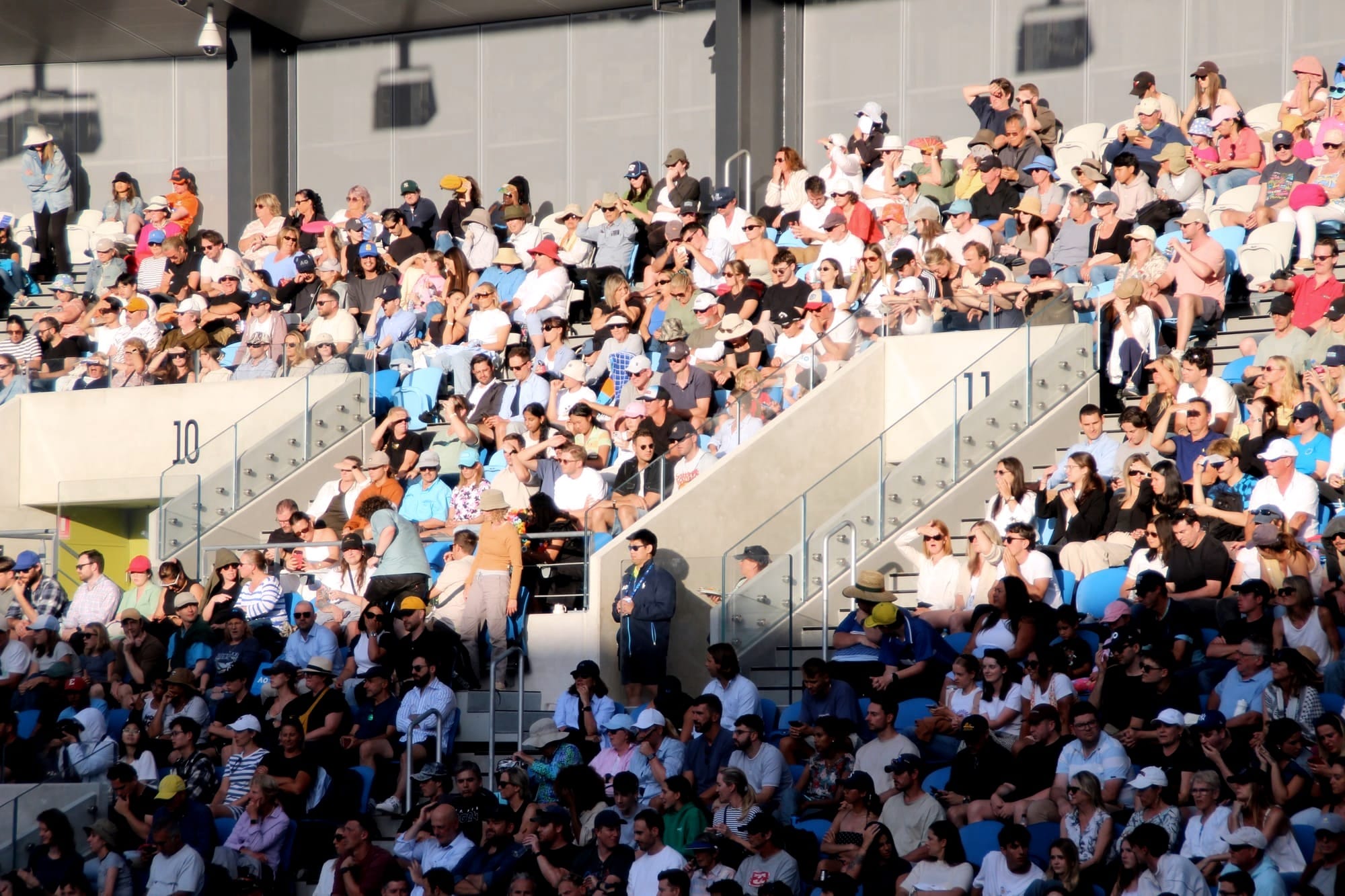Yes—California has special laws for fights at pro sports events
California law includes special rules for behavior at sporting events, especially when it involves referees or disruptive fans. Lead what can lead to fines or jail time—and how those penalties differ from a typical fight.

If you’ve ever wondered whether different rules apply at sports events when it comes to fights, interference, or on-field incidents—the answer is yes. California has specific laws that apply to behavior at both professional games and organized amateur competitions, particularly when it comes to protecting referees, umpires, and other officials.
Video shows a large group of Los Angeles Galaxy fans and San Diego Football Club fans fighting in the stands after Saturday's game.
— ABC7 Eyewitness News (@ABC7) May 25, 2025
Read more: https://t.co/f5oFkdt0Sx pic.twitter.com/AjLh8PngU5
These laws, which can you can review in full in California Penal Code, increase penalties for certain acts—especially violence—and hold fans accountable for actions that could disrupt the game or threaten safety.
Battery on a Referee or Umpire Is Treated More Seriously
According to Penal Code Section 243.8, if you use unlawful physical force (battery) against a sports official—such as a referee or umpire—before, during, or just after a game, you could face a heightened criminal penalty.
Read the complete law
California Penal Code, Section 243.8:
When a battery is committed against a sports official immediately prior to, during, or immediately following an interscholastic, intercollegiate, or any other organized amateur or professional athletic contest in which the sports official is participating, and the person who commits the offense knows or reasonably should know that the victim is engaged in the performance of his or her duties, the offense shall be punishable by a fine not exceeding two thousand dollars ($2,000), or by imprisonment in the county jail not exceeding one year, or by both that fine and imprisonment.
(b) For purposes of this section, “sports official” means any individual who serves as a referee, umpire, linesman, or who serves in a similar capacity but may be known by a different title or name and is duly registered by, or a member of, a local, state, regional, or national organization engaged in part in providing education and training to sports officials.
(Added by Stats. 1991, Ch. 575, Sec. 1.)
What the law requires:
- The official is working at an interscholastic, intercollegiate, amateur, or professional event.
- You knew or should have known the person was acting in an official capacity.
- The act happened immediately before, during, or after the event.
Who qualifies as a “sports official”?
Anyone acting as a referee, umpire, linesperson, or similar role, as long as they’re registered with an official organization that provides training for sports officiating.
Penalties:
- Up to 1 year in county jail
- Up to $2,000 fine
- Or both
How does this compare to regular battery?
Under Penal Code § 243(a), a typical misdemeanor battery (e.g., punching another fan during a dispute) carries a maximum penalty of 6 months in jail and/or the same $2,000 fine.
So, battery against a sports official carries twice the potential jail time, making it a more serious offense under California law.
Fans Face Their Own Penalties at Pro Sports Games
Penal Code Section 243.83 is aimed directly at spectators at professional sporting events—defined as games involving professional athletes or teams where admission is charged.
Read the complete law
California Penal Code, Section 243.83:
(a) It is unlawful for any person attending a professional sporting event to do any of the following:
(1) Throw any object on or across the court or field of play with the intent to interfere with play or distract a player.
(2) Enter upon the court or field of play without permission from an authorized person any time after the authorized participants of play have entered the court or field to begin the sporting event and until the participants of play have completed the playing time of the sporting event.
(b) (1) The owner of the facility in which a professional sporting event is to be held shall provide a notice specifying the unlawful activity prohibited by this section and the punishment for engaging in that prohibited activity.
(2) The notice shall be prominently displayed throughout the facility or may be provided by some other manner, such as on a big screen or by a general public announcement. In addition, notice shall be posted at all controlled entry areas of the sporting facility.
(3) Failure to provide the notice shall not be a defense to a violation of this section.
(c) For the purposes of this section, the following terms have the following meanings:
(1) “Player” includes any authorized participant of play, including, but not limited to, team members, referees however designated, and support staff, whether or not any of those persons receive compensation.
(2) “Professional sporting event” means a scheduled sporting event involving a professional sports team or organization or a professional athlete for which an admission fee is charged to the public.
(d) A violation of subdivision (a) is an infraction punishable by a fine not exceeding two hundred fifty dollars ($250). The fine shall not be subject to penalty assessments as provided in Section 1464 or 1465.7 of this code or Section 76000 of the Government Code.
(e) This section shall apply to attendees at professional sporting events; this section shall not apply to players or to sports officials, as defined in Section 243.8.
(f) Nothing in this section shall be construed to limit or prevent prosecution under any applicable provision of law.
(Added by Stats. 2003, Ch. 818, Sec. 1. Effective January 1, 2004.)
Prohibited fan behavior includes:
- Throwing anything onto or across the playing surface with the intent to interfere with play or distract a participant.
- Entering the field or court of play without authorization any time after the game has started and before it ends.
Penalties:
- Classified as an infraction, not a misdemeanor or felony
- Carries a $250 fine
- No additional court penalty assessments apply
This law doesn't apply to players or officials—it is focused solely on attendees. It’s designed to preserve the safety, integrity, and flow of professional sports events.
Sports Venues Must Provide Safety Info
Under Penal Code Section 243.85, venue owners must take active steps to warn fans and encourage safety.
Read the complete law
California Penal Code, Section 243.85:
The owner of any professional sports facility shall post, visible from a majority of the seating in the stands at all times, at controlled entry areas, and at parking facilities that are part of the professional sports facility, written notices displaying the text message number and telephone number to contact security in order to report a violent act.
(Added by Stats. 2012, Ch. 261, Sec. 1. (AB 2464) Effective January 1, 2013.)
By law, every professional sports facility in California must:
- Post visible signs throughout the stadium, entry points, and parking areas
- Include the text message number and phone number to contact stadium security
- Provide notices that describe the unlawful conduct (like throwing objects or rushing the field) and list the penalties
Even if a fan claims they didn’t see these notices, that’s not a valid legal defense.
What If There's a Fight at a Game?
Here’s how the law treats different kinds of incidents:
| Scenario | Relevant Law | Maximum Penalty |
|---|---|---|
| You hit a regular fan | Penal Code § 243(a) | 6 months jail, $2,000 fine |
| You hit a referee or umpire | Penal Code § 243.8 | 1 year jail, $2,000 fine |
| You throw something onto the field at a pro game | Penal Code § 243.83 | $250 fine (infraction) |
| You run onto the field during a pro game | Penal Code § 243.83 | $250 fine (infraction) |
If the situation escalates—for example, if someone is seriously injured—other charges (like felony battery or assault) could also apply.
Why These Laws Exist
California takes sports-related conduct seriously because:
- Officials and players are vulnerable during competition
- Game flow and public safety are disrupted by fan interference
- Tensions can escalate quickly in crowded, emotionally charged settings
These laws give law enforcement and venue operators the tools they need to respond—and give fans a clear standard for what’s acceptable.






